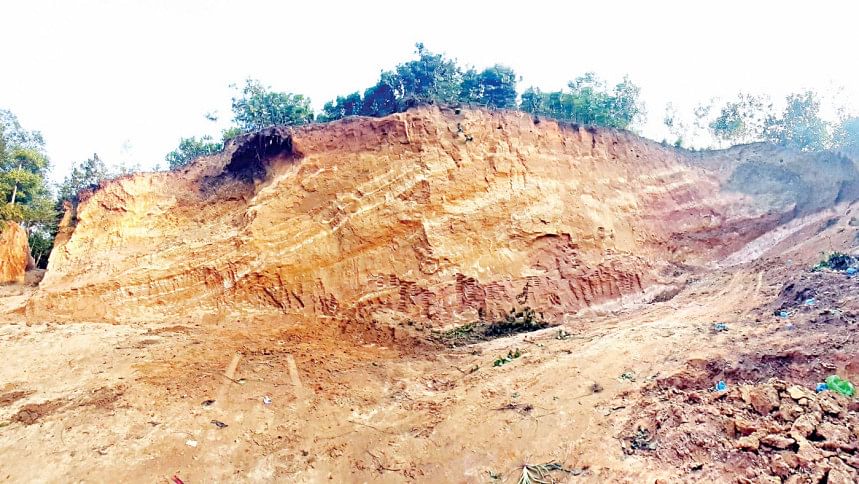Why is hill-cutting still being tolerated?

It's disconcerting that the individuals with connections to power continue to demolish hills or hilly areas around Bangladesh. They excavate soil from there and sell it to brick kiln owners or real estate developers to fill lowlands, or for road construction purposes. But the end, however noble or realistic, doesn't justify the means—especially when there is such a huge environmental cost involved. Unfortunately, the trend of hill-cutting has continued well into the Covid-19 pandemic when most other activities came to a halt.
One such hilly area that is under constant threat is Moulvibazar district, where powerful syndicates are involved in ravaging hills to create plots. In the Islamnagar area of Bhatera Union in Kulaura upazila, for example, hills standing for centuries have been flattened to the ground. It has been reported that more than 200 families who lived on the hills for decades are now homeless. The risk it has posed to the local biodiversity is also unimaginable.
There is no reason to believe that the local officials are unaware of the laws on environment or the development in Islamnagar, but they choose to do nothing anyway. Locals have revealed the names of some well-known people who have been cutting hills owned by local residents, including one by a UP chairperson. The Department of Environment (DoE) has made no attempt to stop their activities. It appears that the DoE is unaware of the clear mandate they have been handed by the Environment Conservation (Amendment) Act, 2010, which says, "…no government, semi-government or autonomous organisation is allowed to cut or raze hills, without prior permission from the authorities concerned." If even the state is not allowed to cut the hills, how come some individuals are?
Our report from Moulvibazar presents a symbolic picture of the predicament our hills are in across the country, which needs to be addressed, so that we can protect the ones that are still standing. Unfortunately, in most cases of environmental destruction and degradation, involvement of local political entities has been reported, but state officials seemed either complicit or unable to do anything in this regard. We urge the government to take a firm stance in this regard, and pursue a policy of zero tolerance to any threat posed to the environment. Raising awareness is also essential to make this successful.

 For all latest news, follow The Daily Star's Google News channel.
For all latest news, follow The Daily Star's Google News channel. 



Comments